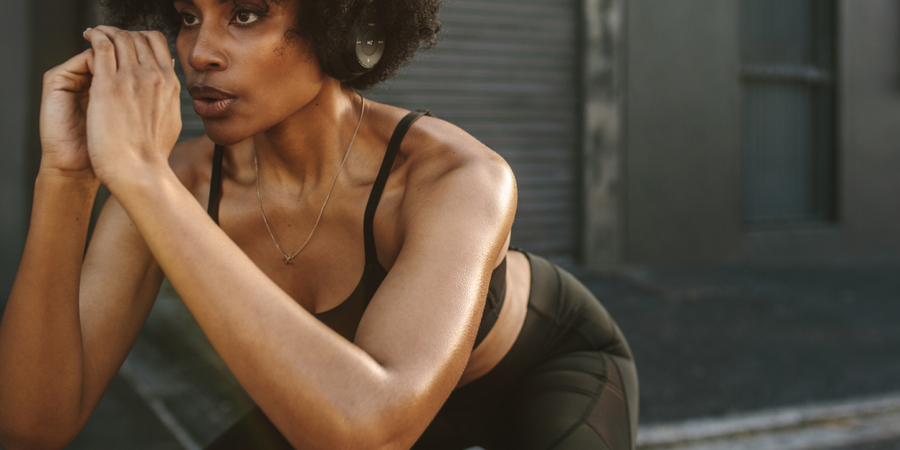
"Ass to Grass" or 90 Degrees? Here's How Low You Should Be Squatting
By Elizabeth Millard
Whether you're loading a barbell across your back, racking a kettlebell over your shoulder, or just warming up with bodyweight squats, the main question is the same: What should your squat depth look like?
There are numerous squat variations, but they all target two of your body's biggest muscles (the quads and the glutes) and enlist your hamstrings and calves in the process. You'll get your core working, too, since the motion fires it up to keep you stabilized.
Although you'll need to focus on what level of resistance you want — bodyweight or loaded — depth should also be high on your checklist when it comes to form, according to Carol Mack, D.P.T., C.S.C.S., doctor of physical therapy and strength and conditioning coach.
Speed recovery and support muscle growth with the high-quality protein in LADDER Whey or Plant Protein. Shop all premium supplements.
How Important Is Depth in a Squat?
Getting as much depth in your squat as possible helps to fire up the muscles more efficiently, says Mack. But determining how low you should go can vary from person to person.
“[Squat] depth is going to depend on more factors than you might think — whether you have knee, hip, or ankle pain, and if you have enough hip mobility to go deeper." says Mack.
In general, she adds, it's helpful to go as deep as you can without sacrificing form to do it.
Should You Go Lower Than 90 Degrees?
One unrelenting myth about squat depth is that you should never let your knees go past your toes. While this cue may indicate other form mistakes you may be making — such as not hinging at the hips — Mack says that your knees will likely drift past your toes if you're going into a deeper squat, particularly with an activity like powerlifting.
“Don't worry about your knees coming forward when going past 90 degrees and ," she says. “Of course, don't force yourself deeper if you feel pain or a tight spot. But if you're comfortable going deeper and you're listening to your body, then it's okay to go lower."
One alignment tip that helps, she adds, is to look down and make sure your knees are in line with your middle two toes, rather than splaying outward.
How Can You Improve Squat Depth?
If squat depth is something you struggle with, here are some ways to help you get lower during your squats.
1. Focus on your hips
Because squat depth is not just about your quads and glutes, focusing on the hips can be a game-changer, Mack says.
“You'll need to be able to bend with hip flexion, but also to rotate inward and outward," she notes. “That might require adding hip mobility or strengthening to your routine to improve your squats."
Hip mobility exercises can do more than help squat depth, too. They can reduce the strain on the body from sitting too much, improve overall flexibility, and give you greater range of motion.
2. Increase ankle strength and flexibility
Mack adds that it's also important to have greater ankle flexibility. This aspect of the squat can sometimes get ignored, but it plays a huge part in helping you get deeper. Ankle-strengthening exercises can give you greater mobility and stability to support your squats, no matter how deep you go.
3. Strengthen your core
Finally, remember that squats involve your spine as well, Mack says.
“Some people have trouble keeping their trunk upright as they move deeper into their squat," she says. “This can throw off alignment throughout the squat movement. It can happen for a lot of reasons, including mobility, but core strength is a big culprit."
If you tend to round your back as you come into a squat, or feel your upper body collapse as you're pushing back up to standing, that usually means you need to integrate more core work into your routine, she suggests. Fortunately, there are tons of options for that, and much like the other mobility and strengthening choices here, you'll be reducing your risk of injury and improving your form for a breadth of moves, including squats.



